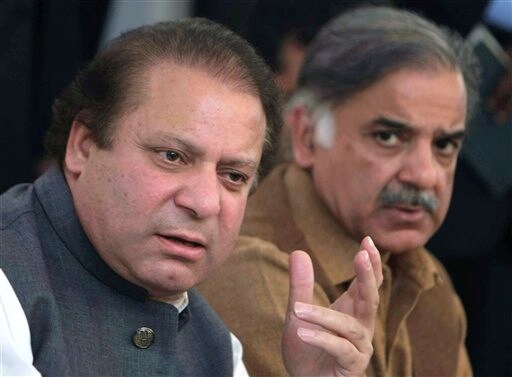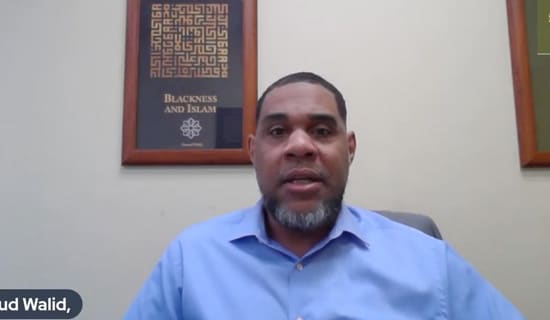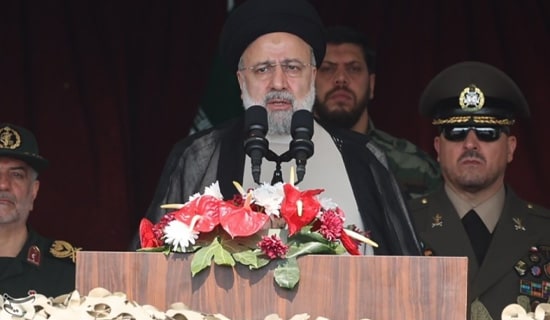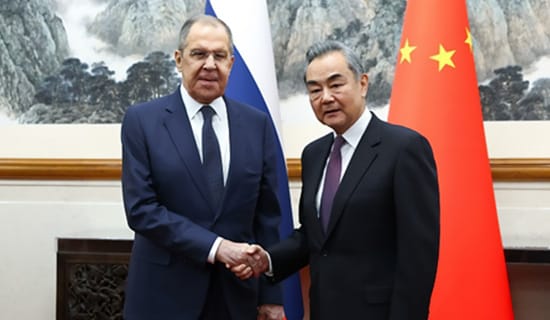
Shahbaz Sharif (right) with brother and former Prime Minister Nawaz Sharif
On March 2, 2011, Pakistan's Minority Affairs Minister Shahbaz Bhatti, the only Christian minister in the Pakistani cabinet, was assassinated in the capital Islamabad over his calls for reform of Pakistan's blasphemy laws. A pamphlet, issued by "Al-Qaeda and the Tehreek-e-Taliban Punjab," was left at the scene claiming responsibility for the assassination and warning Pakistani leaders against working for infidels.[1] Bhatti's was the second assassination in two months over the blasphemy laws controversy, the other being of Punjab Governor Salman Taseer on January 4.
The term "Punjabi Taliban" – or Tehreek-e-Taliban Punjab – refers to the multi-ethnic nature of the Taliban in Pakistan, especially the Urdu- and Punjabi-speaking Sunni militants from the Punjab province of Pakistan, who have been increasingly working alongside the Taliban and Al-Qaeda. In the wake of the assassination of Shahbaz Bhatti, Pakistan's federal Interior Minister Rehman Malik used the term "Punjabi Taliban" in blaming them for the attack.
However, Shahbaz Sharif, the Chief Minister of Punjab, took exception and asked Malik not to use the expression "Pakistani Taliban." Sharif, whose provincial government's association with extremist Sunni groups in Punjab has been a subject of media discussion in recent years, urged Rehman Malik "not to do politics" on the issue of terrorism, stating: "I warn Rehman Malik not to use divisive language... the interior minister must not use the expression 'Punjabi Taliban.' Terrorism is an issue for the entire nation and we all have to jointly fight to end it."[2]
The controversy has another angle: recently Shahbaz Sharif chose to part ways with the Pakistan People's Party (PPP), dropping PPP ministers from the provincial coalition government. The two parties did not have any power-sharing arrangement, except for a brief period, in the federal government. Sharif's Pakistan Muslim League (PML-N), a center-right party, has been widely criticized for its relationships with Sunni jihadist groups in Punjab.
Notwithstanding Sharif's displeasure over the expression "Punjabi Taliban," some Pakistani newspapers criticized Sharif's Pakistan Muslim League (PML-N) party for its relationship with the militants in Punjab. An article in the Lahore-based Daily Times newspaper, written by noted author and actor Naeem Tahir, blamed Sharif's party for its pro-Taliban mindset, noting: "'The PML-N has shown a pro-Taliban mindset and support for pro-Taliban activists. The PML-N is known to have provided over 50 million worth of financial assistance to Jamaatud Dawa (JuD), a banned network, in its provincial budget. Senior leaders of the PML-N are seen campaigning with extreme rightists and aggravating interfaith discord."
Jamaatud Dawa is the charity arm of Pakistani jihadist organization Lashkar-e-Taiba. Both these groups, along with their associated charities, have been outlawed by the UN Security Council for their role in the 2008 Mumbai terror attacks.
Sharif was also criticized, in an editorial titled "Punjabi Taliban," by the liberal newspaper Dawn, which observed that Sharif's "angry response – time and again – to the 'Punjabi' tagging of terrorists betrays a lack of understanding that does not quite suit the head of a provincial government. There is no insinuation that the Taliban enjoy the active support of the entire population of a province. It is only Mr. Sharif's interpretation that appears to give that sinister, all-encompassing meaning to a term a set of terrorists – many of whom have received training in Waziristan – have boasted of in recent times."
"A Lack of Action on the Part of the… [Sharif] Government will Only Add to the Impression That It, or Some of Its Members, Had a Soft [Spot] for Terrorists on a Killing Spree"
Following are excerpts from the Dawn editorial:[3]
SUPPORT OUR WORK

"It is difficult to say who is guilty of hurting the Punjabi sensibility and compromising Punjab's security more. [Punjab] Chief Minister Shahbaz Sharif has warned [the federal] Interior Minister Rehman Malik against using the term 'Punjabi Taliban.' The federal minister initially gave the impression that he was ready to take on Mr. Sharif over the issue, going so far as to declare he was not a subordinate of the chief minister. But then he capitulated in the manner his party, the PPP [Pakistan People's Party], seems to have perfected. Mr. Malik has promised Mr. Sharif an explanation; however, others may not share the interior minister's compulsion and would be more tempted to raise the critical question of what is so irritating about the term 'Punjabi Taliban' that has made the chief minister livid.
"His angry response – time and again – to the 'Punjabi' tagging of terrorists betrays a lack of understanding that does not quite suit the head of a provincial government. There is no insinuation that the Taliban enjoy the active support of the entire population of a province. It is only Mr. Sharif's interpretation that appears to give that sinister, all-encompassing meaning to a term a set of terrorists – many of whom have received training in Waziristan – have boasted of in recent times.
"Rather than taking it as an attack meant to be countered forcefully, the mention of the Punjabi Taliban should lead to a bit of searching of the soul and territory at Mr. Sharif`s command. There have been far too many allegations for him to continue to ignore the issue. The pamphlet left at the site of Minister Shahbaz Bhatti's murder in Islamabad recently had the Taliban from Punjab claiming responsibility for the dastardly act.
"If this is not the right time and the right sign for Punjab to act, there never will be. A lack of action on the part of the provincial government will only add to the impression that it, or some of its members, had a soft [spot] for terrorists on a killing spree. Their victims include people from all ethnic groups and a number of politicians and political activists belonging mainly to the PPP and the Awami National Party [which rules in Khyber Pakhtunkhwa province]. During his attacks on Mr. Malik, the chief minister has once again, and rightly so, pointed out that it was irrelevant as to which ethnic group a terrorist belonged to. He would be doing Punjab, and coincidentally Pakistan, a great service if he could move beyond simply cleaning up the Pathan areas in Lahore in his attempt to pre-empt terror strikes. He must look deeper and must not discriminate."
"The PML-N has Shown a Pro-Taliban Mindset and Support for Pro-Taliban Activists"
Following are excerpts from Naeem Tahir's article:[4]
"The Pakistan People's Party (PPP) has been almost 'kicked out' from the Punjab government. The uncomfortable marriage between the PPP and the PML-N has come to an end with little grace. The end of the 'coalition confusion' will, hopefully, be good for the people. The game of good cop/bad cop is over and both can show their true character. But their true characters are also a matter of concern. The PPP has so far appeared very spineless, incompetent and ineffective. The PML-N has shown a pro-Taliban mindset and support for pro-Taliban activists. The PML-N is known to have provided over 50 million worth of financial assistance to Jamaatud Dawa (JuD), a banned network, in its provincial budget. Senior leaders of the PML-N are seen campaigning with extreme rightists and aggravating interfaith discord. The PML-N stands with them while inflammatory and hate speeches are delivered and ensures that the extremist, pro-Taliban vote bank continues supporting them.
"The PML-N leadership has shown little sensitivity to the damage they are doing to the social fabric by standing with the extremists. The PML-N has made no effort for inter-cultural harmony. It relies on 'Punjab support,' and plays that 'card.' It has also diverted attention from its own corruption and incompetence…
"Many somersaults were made; first the PML-N joined the federal government and [displayed] erratic behavior. Then they realized that being in the government will gradually erase their identity and the opposition will gain as usual. So they decided to move from the treasury benches to the opposition benches. The PML-N adopted the strategy to throw the bait of sharing the government in Punjab, which left the PPP neither here nor there.
"The PML-N held 60 percent of Pakistan, but sat in the opposition in the National Assembly and thus enjoyed the position of being in power as well as in the opposition! ... The PPP obviously wants to stay in power for five years and reap a rich harvest, the PML-N wants to dig deeper and consolidate with rightists, extremists, and General Zia sympathizers and their mysterious financiers. 'Financiers' may not be much of a mystery for those who claim with confidence that substantial funding from Al-Qaeda was made available to Mian Nawaz Sharif [brother of Shahbaz Sharif and former Prime Minister]. Also something to think about is that the murdered, Benazir Bhutto, Salman Taseer, Shahbaz Bhatti, were all enlightened leaders from the PPP…"
"The Support to the PML-N is Strongly Committed from the Violent Minority; Funds, Muscle, and Street Power are All Made Available By Exploiting the Fair Name of 'Islam"'
"The support to the PML-N is strongly committed from the violent minority. Funds, muscle, and street power are all made available by exploiting the fair name of 'Islam.' The recent launching of the total control of Punjab by the PML-N [parting ways from the PPP] appears to have been 'celebrated' through the murder of Shahbaz Bhatti by the Punjabi Taliban.
"The future is incredibly depressing for those who believe in the vision of Allama Iqbal and the statesmanship of Quaid-e-Azam [the two founders of Pakistan].
"The important question here to consider is what role the PPP is going to play now. Is the [PPP] leader of the opposition in Punjab happy with the perks and will stay quiet and let the PML-N continue and expedite the process of radicalization in Punjab? Would the PPP really stand up and expose and struggle for a Punjab free from fear? Is the federal government of the PPP going to continue to live with the murder of its leaders in Islamabad or is it going to do something about it? Is the PPP left with any commitment, energy or will to stem the tide of radicalization? At the present time not much can be expected from this party. It seems to be content with the status quo at the cost of the blood of its leaders and maybe does not plan to be an effective political force in future…"
Endnotes:




